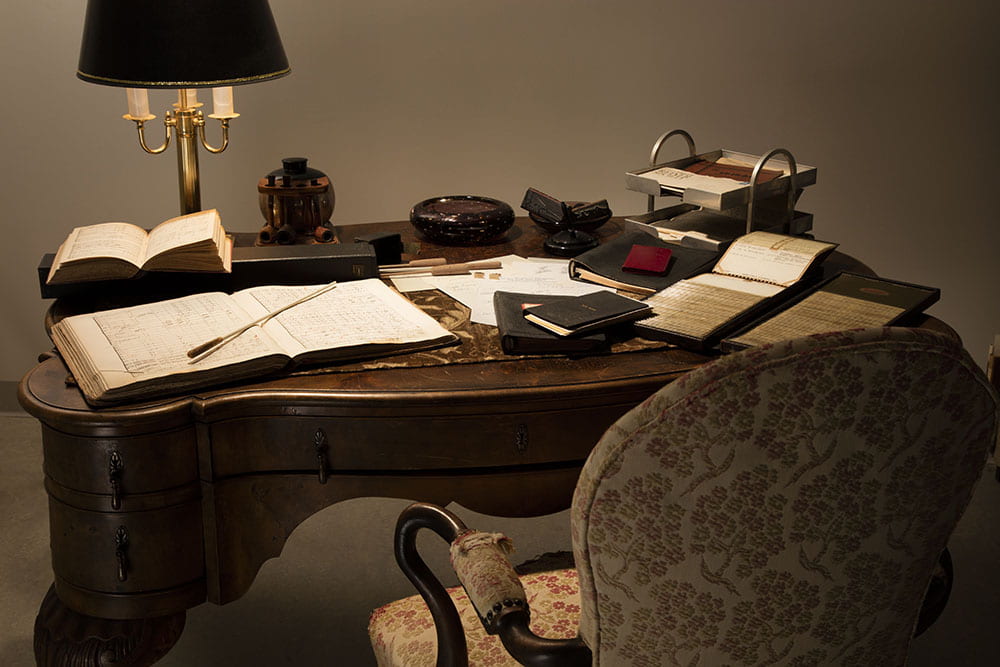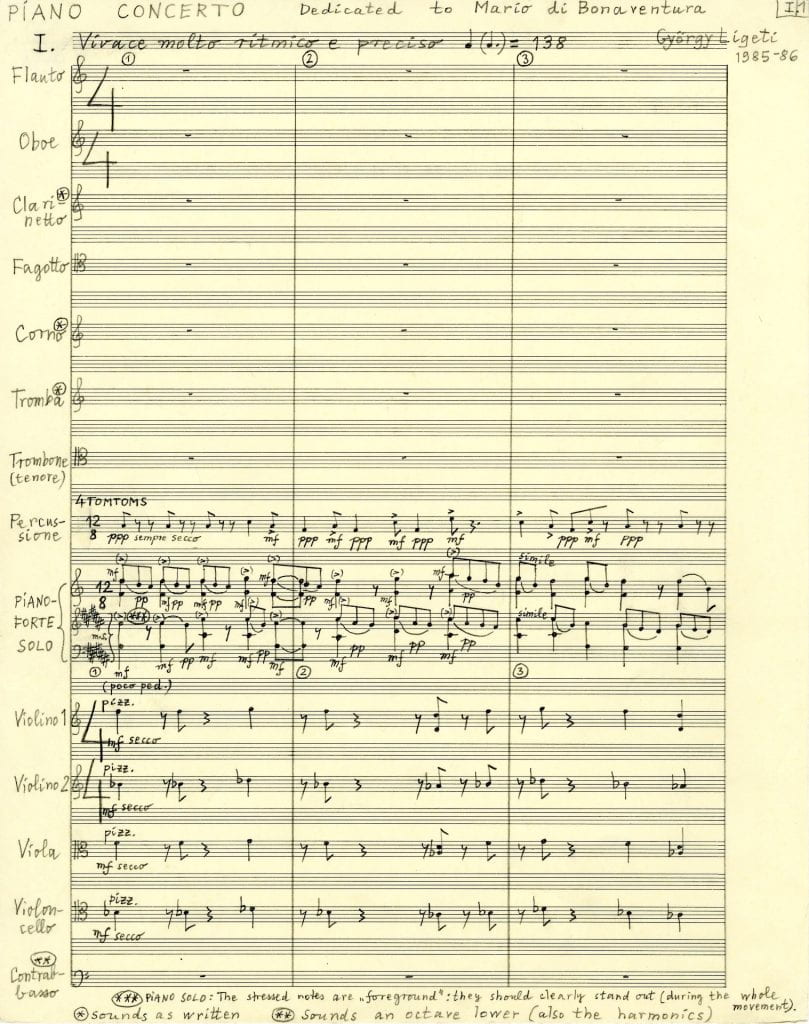Long-dedicated to collecting twentieth-century and contemporary art music, the Northwestern University Music Library holds several important archival collections documenting the careers of influential orchestra conductors who were champions of new music both here in Chicago and around the world.
One of the crown jewels of the Northwestern Music Library is the Fritz Reiner collection. The Music Library holds an extensive collection of the Hungarian-born, conductor’s correspondence, ephemera and a vast library of orchestral scores which contain his markings and notes. Reiner served as the music director and conductor of the Chicago Symphony Orchestra from 1953 to 1962, and was responsible for developing the “Chicago Sound” (a distinctly clear and full tone in the brass section) making the CSO “the most precise and flexible orchestra in the world” according to legendary composer Igor Stravinsky. His scores are of immense value to scholars of orchestral conducting and programming in the 20th century.

A mock-up of Reiner’s desk. With the exception of the lamp, all items are a part of the Reiner Collection.
French conductor and composer Jean Martinon was Reiner’s successor at the CSO and served as the orchestra’s seventh music director and conductor from 1963 to 1968. Martinon continued to promote new music and devoted a portion of each year to his own compositions, the majority of which form the Jean Martinon Papers at Northwestern.
Edward Clark (1888-1962) is not a name that is well-known today. He was an English conductor and music administrator who promoted new music through innovative radio and concert programming. His concerts and BBC radio broadcasts which featured new works outside the established, conservative Western performance canon were ahead of their time. They were especially influential in giving new music a global audience thanks to the BBC’s world-wide reach. Clark’s papers also provide a fascinating snapshot of the music scene in England during the interwar years through the decade that followed World War II.
Mario di Bonaventura’s papers and scores also call Northwestern home. Like Clark, di Bonaventura (1924-2017) is not widely-known but he was well-connected with the leading composers of the latter half of the 20th century. He was a distinguished conductor making guest appearances at leading ensembles around the world, started an important new music festival at Dartmouth, and always programmed new music in his concerts and festivals. Di Bonaventura is responsible for the commissioning of many works by major 20th century composers, including György Ligeti’s landmark Piano Concerto, which di Bonaventura premiered. Both the manuscript score, Ligeti’s sketches and drafts, and an audio recording of the premiere are part of the collection along with other manuscripts, marked scores, correspondence, programs, notes, and other papers documenting his extensive career.
Individually or as a set, these four composer collections provide a myriad of rich research potential for Northwestern students, faculty, and visiting scholars alike.

